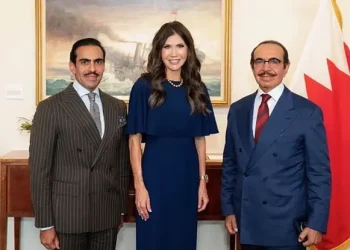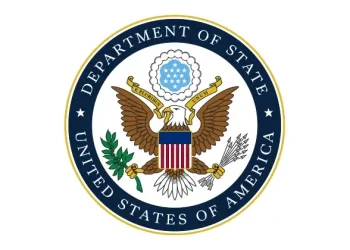The U.S. Department of State has imposed sanctions on Francesca Paola Albanese, the UN Human Rights Council Special Rapporteur, for her engagement with the International Criminal Court (ICC) to investigate U.S. and Israeli nationals without consent.
This action aims to protect national sovereignty and counter perceived legal overreach.
Background on Sanctions
The U.S. Department of State recently announced sanctions against Francesca Paola Albanese under Executive Order 14203, which targets perceived overreach by the International Criminal Court (ICC).
These measures are in response to Albanese’s efforts to involve the ICC in investigating alleged human rights violations involving U.S. and Israeli nationals.
Albanese’s actions have been characterized by the U.S. as a violation of sovereignty, given that neither the United States nor Israel is a party to the Rome Statute, which governs the ICC’s jurisdiction.
The sanctions reflect ongoing tensions surrounding international legal scrutiny of actions in Palestinian territories.
U.S. Perspective on Sovereignty
The United States government views these sanctions as essential for defending its sovereignty and that of its ally, Israel.
Secretary of State Marco Rubio emphasized that such measures are necessary to counter what is seen as “lawfare,” or the misuse of legal systems for political ends.
By imposing these sanctions, the U.S. aims to protect its national interests and those of major American companies targeted by Albanese’s calls for ICC investigations. This move underscores a commitment to resisting international legal actions deemed illegitimate or biased.
Implications for International Relations
- The sanctions may strain relations with UN bodies supporting ICC investigations.
- This action strengthens ties between the United States and Israel.
- It sets a precedent for future U.S. responses to international legal challenges.
- The move signals protection for American economic actors from external pressures.
Reactions from Stakeholders
Francesca Paola Albanese has faced accusations from the U.S., including bias, antisemitism, and support for terrorism due to her advocacy efforts related to alleged human rights violations in Palestinian territories occupied since 1967.
The Israeli government supports these sanctions as they align with their interests in countering ICC investigations targeting Israeli nationals like Prime Minister Benjamin Netanyahu and former Defense Minister Yoav Gallant, whom Albanese named without legitimate basis according to U.S. officials.
Strategic Developments
- The United States commits to ongoing actions against perceived ICC overreach.
- This decision reinforces U.S.-Israel diplomatic relations amid regional tensions.
- The move may influence future international law engagements by other nations wary of similar scrutiny.
- Sanctions highlight broader debates on accountability and human rights in conflict zones.
Additional Reading
Bottom Line
This development highlights ongoing geopolitical complexities surrounding international law enforcement in conflict regions like Palestine-Israel.
The U.S.’s firm stance against perceived judicial overreach reflects broader concerns about sovereignty and national security while reinforcing alliances with key partners like Israel amidst global debates on accountability and human rights practices.
Sources: U.S. Department of State.
Prepared by Ivan Alexander Golden, Founder of THX News™, an independent news organization delivering timely insights from global official sources. Combines AI-analyzed research with human-edited accuracy and context.








